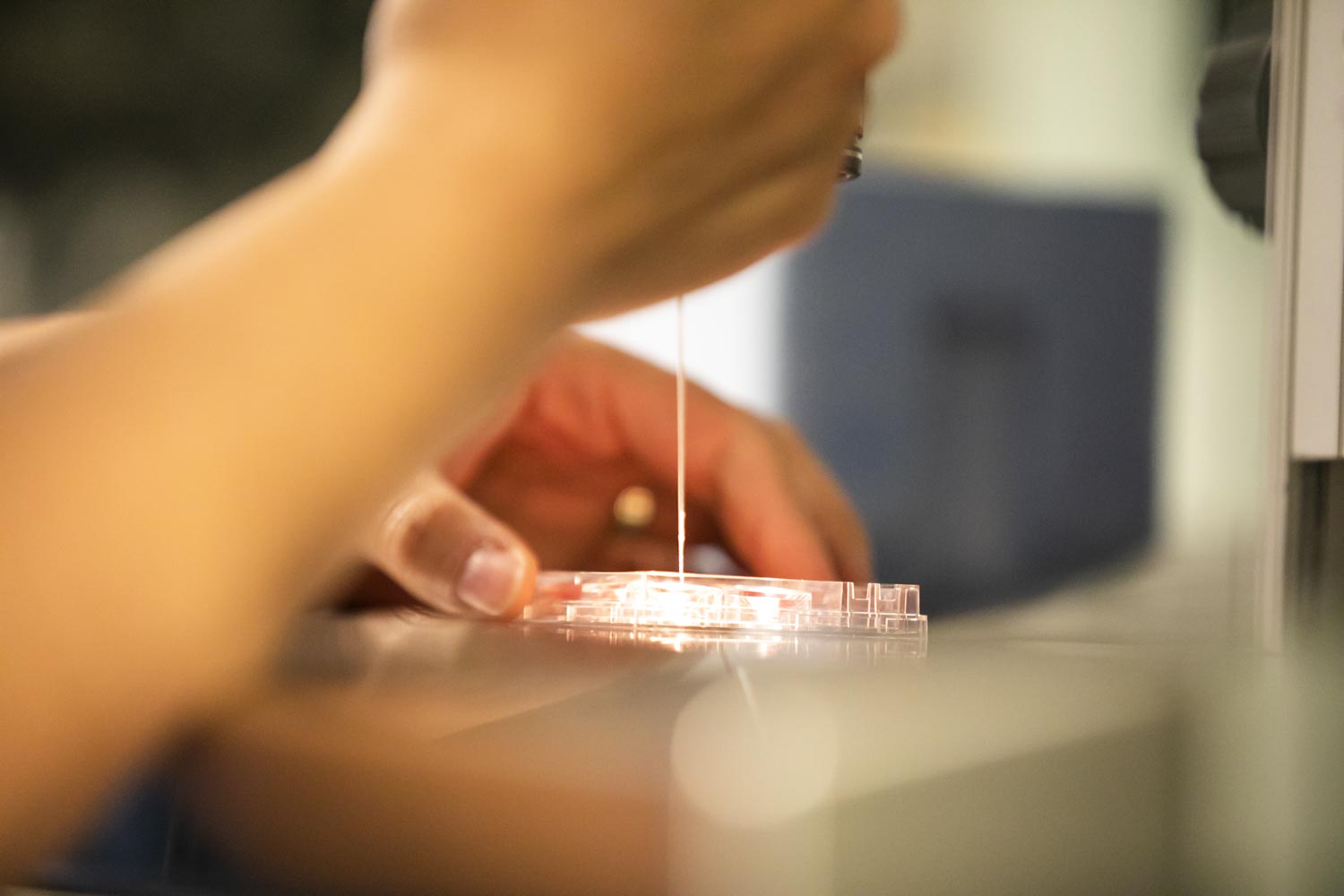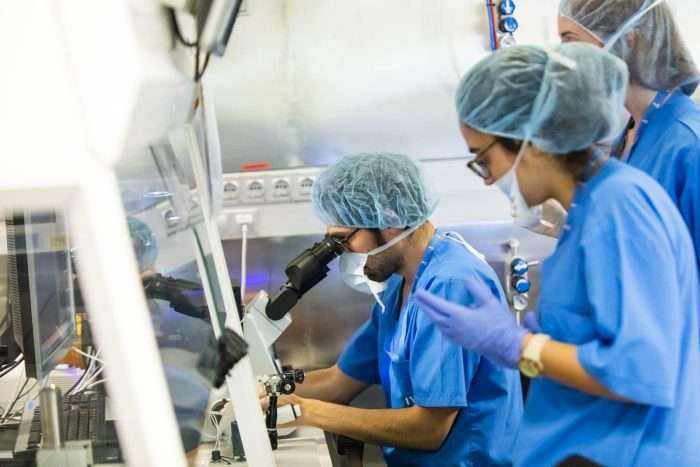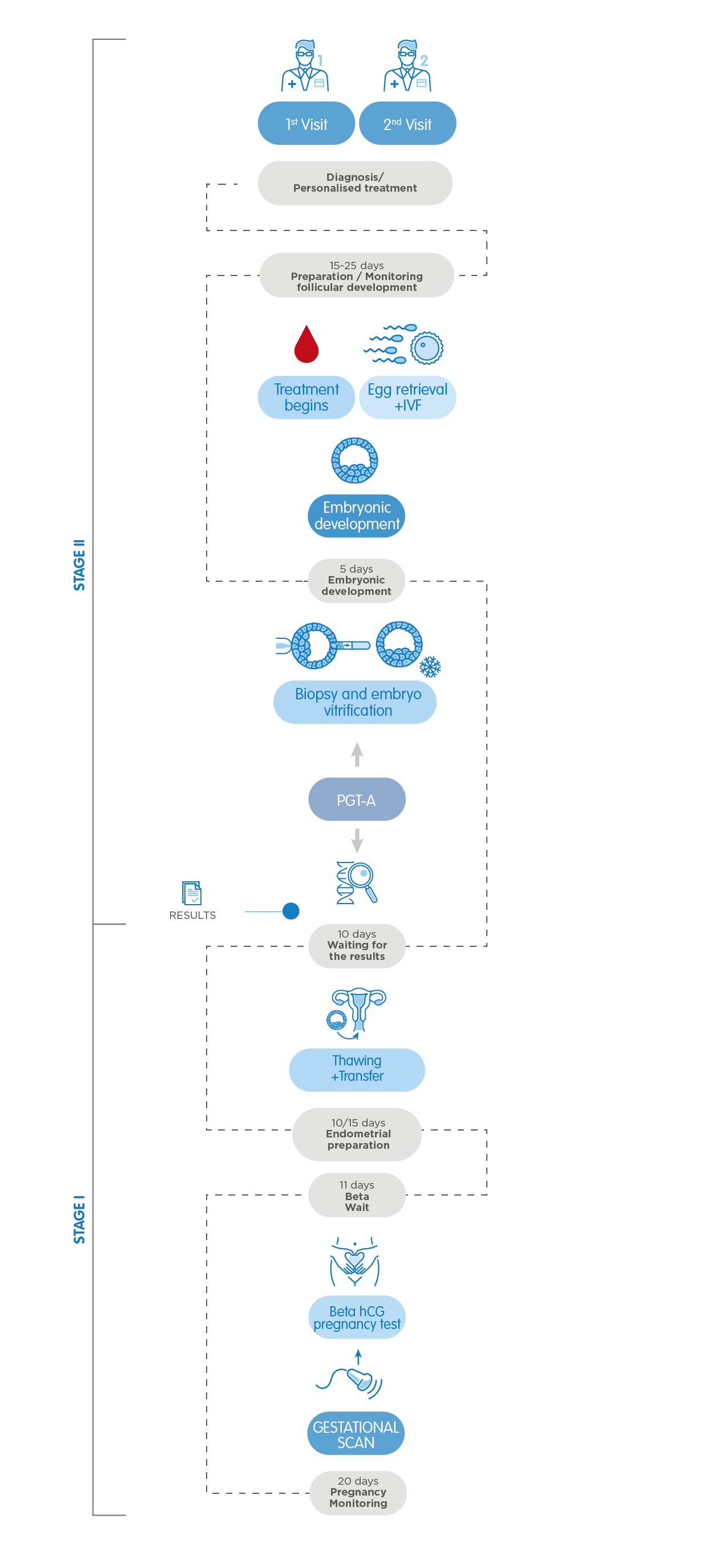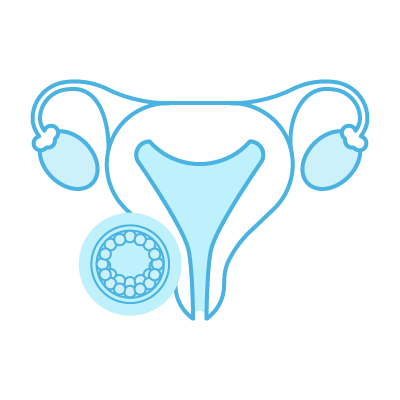

It is the combination of IVF (In Vitro Fertilization) and PGS (Preimplantation Genetic Screening). Although both techniques have been used for a long time, IVI now offers them in very favourable conditions to ensure, even more so if possible, the safety of its patients' newborn babies.

IVF Genetic is a combination of in vitro fertilisation (IVF) and Preimplantation Genetic Testing (PGT-A), which detects abnormalities in the number of chromosomes in the embryos, also known as aneuploidies. Thanks to this screening, identifying chromosomal abnormalities in the embryo chosen for transfer reduces the risk of miscarriage and increases the chances of having a healthy baby, free of diseases such as Down, Turner and Klinefelter syndromes.
IVI offers IVF Genetic – a union of both techniques, under particularly advantageous conditions, in response to our patients´ growing concern about safety during their assisted reproductive treatment.
An in vitro fertilisation with a PGT-A is recommended for:


The main advantages of preimplantation genetic testing aimed at detecting numerical abnormalities in the embryo chromosomes (PGT-A) are:
Preimplantation genetic testing allows us to detect alterations in the chromosomes (PGT-SR), in their number (PGT-A) or in a specific gene (PGT-M). Thanks to these tests, we can detect genetic problems in embryos and only transfer the optimal ones. This reduces the risk of miscarriage and increases the chances of having a healthy baby.
|
Pregnancy rate after 3 cycles. Each cycle includes the first fresh embryo transfer and subsequent transfers of all embryos generated and cryopreserved in that cycle.
|


At IVI, any treatment begins with your first visit with one of our fertility experts at the chosen clinic, who analyses the patient´s medical record and all the reports relative to previous treatments carried out, if applicable. Moreover, this appointment includes a complete gynaecological examination, as well as sperm analysis in the case of heterosexual couples. At IVI, we believe that a comprehensive and personalised medical diagnosis is key to helping our patients achieve their goal: having a baby.
Once back home, the patient will self-administer daily injections for 15-25 days to boost ovarian stimulation, resulting in the production of multiple eggs instead of one that month. This way more embryos become available, without the need for repeating the process. Your gynaecologist will monitor the number of follicles (cavities in which the oocytes develop) by carrying out various ultrasound scans (3 or 4) and blood tests. Once the follicles have reached the right size and their development an advanced stage, a dose of the hCG hormone will be administered to trigger ovulation and 36 hours later, an egg collection will be scheduled at your IVI clinic.
The mature eggs are aspirated during a simple, ultrasound-guided procedure, carried out in an operating theatre under sedation. To perform the retrieval, we access the ovaries through the vaginal cavity and puncture every follicle, aspirating the fluids which contain the oocytes. The procedure last less than 15-20 minutes and soon after, the doctor tells you how many eggs were retrieved. The patient may go back to her home country on the very same day and resume everyday tasks.
Having procured the eggs and sperm sample, we proceed with an in vitro fertilisation, performed by means of a technique called ICSI. It consists in injecting a single sperm cell from the previously manipulated sperm into every egg, making the fertilisation process easier.
During embryo culture, our IVF lab specialists monitor embryonic development until day 6 or 7, the moment when the embryos reach the blastocyst stage and can be classified according to their quality.
The approved embryos are biopsied, a process by which a few cells are extracted through a tiny opening. After the biopsy, the embryos are vitrified (frozen) until the results of the genetic screening become available. As for the biopsied cells, they undergo the PGT-A, Preimplantation Genetic Testing, which helps confirm that the number of chromosomes in the embryos is right. This test is carried out by means of a cutting-edge technology called NGS, Next Generation Sequencing, focused on finding abnormalities in any of the 23 chromosome pairs. We receive the results 10 days later. Based on the chromosome number it contains, we can classify an embryo as normal and so, it becomes a candidate for devitrification and transfer into the mother´s uterus.

To perform the transfer, the uterus of the patient must be previously prepared, ensuring that the endometrium (the inner layer of the uterus) has the right thickness to receive the embryo and facilitate getting pregnant. On transfer day, embryologists will thaw one of the embryos classified as healthy. The procedure takes place at the chosen IVI clinic and it involves introducing the best embryo into the women´s uterus by inserting a transfer cannula vaginally. It is painless, requires no anaesthesia and having rested for a couple minutes, the patient may resume everyday activity and even travel.
Your gynaecologist will tell you when to take a blood pregnancy test, which is normally 11 days after the transfer. If the result is positive, 20 days later they will perform a control ultrasound scan and IVI will then discharge you.